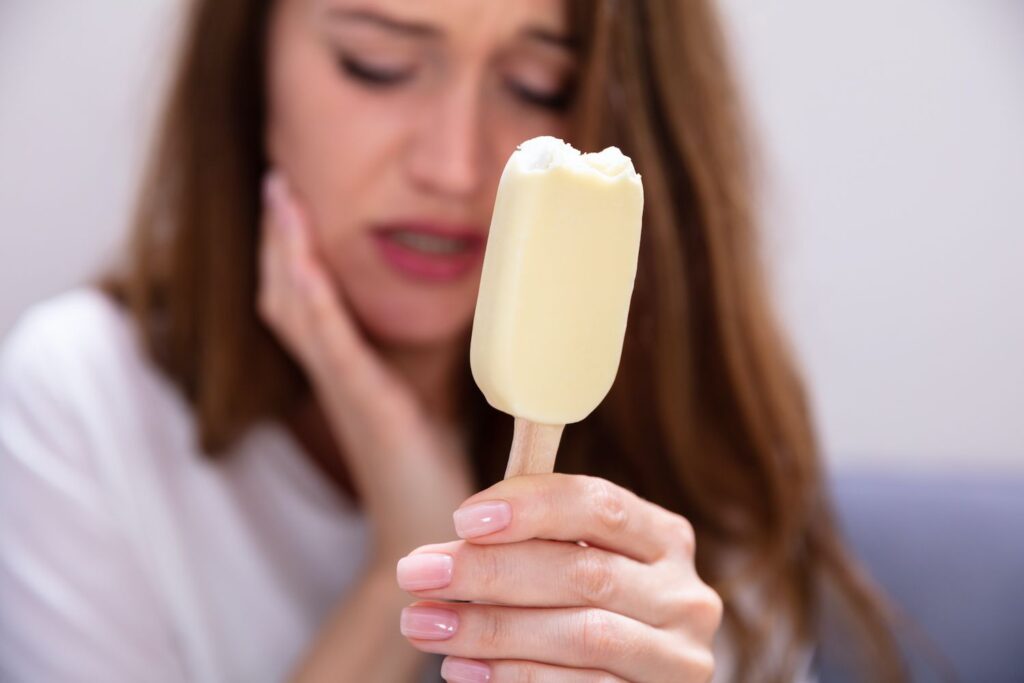Our teeth are incredible tools that help us chew, speak, and smile. However, sometimes they face challenges, like teeth grinding and tooth sensitivity. These issues can cause discomfort and affect our daily lives. The more you understand about these conditions, the better you can manage them.

Teeth Grinding: What is it?
Imagine clenching your teeth together tightly, perhaps without even realizing it. This is essentially what happens during teeth grinding, also known as bruxism. It’s a common condition where a person clenches, gnashes, or grinds their teeth. This often occurs during sleep. But, it can also happen when we’re awake, especially during times of stress.
There isn’t always a clear-cut answer to why people grind their teeth. However, stress and anxiety are common culprits. Sometimes, it can also be related to an abnormal bite or missing or crooked teeth. Whatever the cause, the repeated grinding can wear down the enamel—the protective layer of our teeth—and lead to a range of issues.
The Effects of Teeth Grinding
One of the primary effects of bruxism is tooth wear. Enamel, the hard outer layer of the tooth, starts to erode, making teeth more sensitive to hot, cold, and sweet foods. Over time, grinding can lead to tooth fractures, loose teeth, and even jaw pain or headaches.
Managing Teeth Grinding
If you suspect you grind your teeth, it’s essential to speak with your dentist. They might recommend a mouthguard. This is a custom-fitted device worn during sleep to protect your teeth. Stress-reducing activities like yoga, meditation, or counseling can also help manage bruxism.
Understanding Tooth Sensitivity
Have you ever cringed after a sip of hot coffee or a spoonful of ice cream? That sudden, sharp pain is often a sign of tooth sensitivity. This common problem occurs when the enamel on our teeth wears down or recede, exposing the sensitive inner layers. Unfortunately, this issue is frequent among those who grind their teeth.
There are several other reasons why tooth sensitivity occurs. Brushing too hard, using a hard-bristled toothbrush, or consuming acidic foods and drinks can wear down enamel. Gum recession, often caused by gum disease or vigorous brushing, can also expose the sensitive dentin layer beneath the enamel.
Tooth sensitivity can manifest as a sudden, sharp pain when consuming hot, cold, sweet, or acidic foods and drinks. Some people might also have discomfort when brushing or flossing their teeth. As a result, this can lead to avoiding proper oral hygiene practices.
Tips for Managing Tooth Sensitivity
The good news is that you can manage tooth sensitivity with some simple adjustments to your oral care routine. Switching to a soft-bristled toothbrush and using toothpaste designed for sensitive teeth can help. Avoiding highly acidic foods and drinks can also make a difference.
If tooth sensitivity persists or worsens, it’s best to seek advice from a dentist. They can assess the underlying cause and recommend dental treatments to strengthen enamel or dental procedures to address gum recession.
